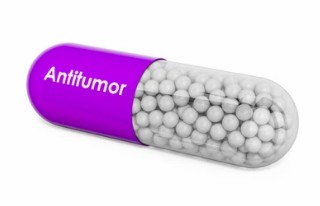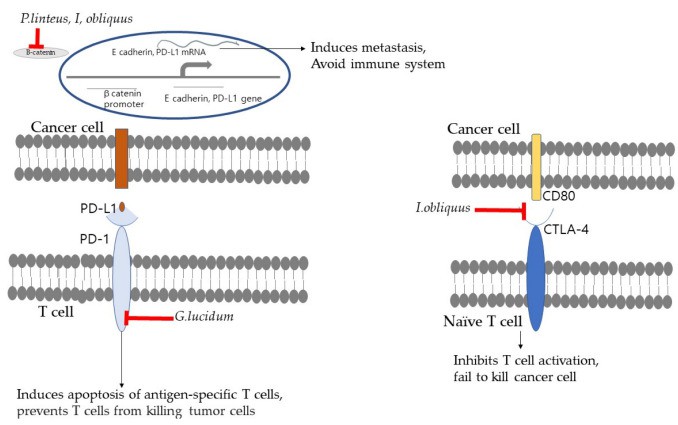
Cancer is the most common death cause worldwide. Various chemotherapeutic drugs have been widely used to treat cancer. However, current anti-cancer drugs can cause serious side effects and lead to drug resistance. It is therefore critical to develop new effective anticancer agents with minimal or no side effects. Certain natural compounds derived from plants or microorganisms are active ingredients in anti-cancer drugs. Many researchers are now turning their attention to mushrooms with biological activities, such as anti-tumor activity.
Lifeasible offers the potential of fungi for anti-tumour drug development. By developing and studying compounds with anti-tumour activity in mushrooms, the mechanism of action of mushrooms on tumor cells can be further evaluated in a preclinical setting, providing data to support the further development of anti-tumor drugs.
Antitumor Mechanisms of Mushrooms
The great therapeutic potential of edible and medicinal mushrooms is attributed to the presence of bioactive compounds in the mushrooms. Mushrooms have been shown to overcome Pgp-mediated multidrug resistance, and β-glucan in medicinal mushrooms can act as an immune adjuvant and has been found to stimulate innate and adaptive immune responses to reverse anti-PD-1/PD-L1 resistance by modulating the immune system. Mushroom-derived compounds exert anti-tumour and anti-metastatic effects by acting on various molecules in the PI3K/AKT pathway. Mushrooms can also target the Wnt/β-catenin pathway in cancer. For example, 4-acetylantroquinonol and antroquinonol from Ocimum sanctum were found to inhibit colon cancer by inhibiting the Wnt/β-catenin pathway. MAPK and NF-κB pathways in cancer can also be targeted with mushrooms.
 Fig. 1 The illustration of the anticancer mechanisms of mushrooms by inhibiting the PD-1 pathway and CTLA-4/CD80 pathway. (Park HJ, et al., 2022)
Fig. 1 The illustration of the anticancer mechanisms of mushrooms by inhibiting the PD-1 pathway and CTLA-4/CD80 pathway. (Park HJ, et al., 2022)
Our Services
Lifeasible offers research services for the use of mushroom extracts as anti-cancer agents.
Bioactive compounds found in mushrooms include polysaccharides, proteins, fats, phenolics, alkaloids, ergocalciferol, selenium, folic acid, enzymes and organic acids. Anti-cancer compounds found in mushrooms include antroquinonol, cordycepin, hispolon, lectin, krestin, polysaccharide, sulfated polysaccharide, lentinan, and Maitake D Fraction. Our research team can extract the target compounds for your needs to better develop your drugs.
- We can extract the active ingredients from mushrooms in a variety of forms to provide you with the specific extracts you need for your experimental studies. Our mushroom extracts include, but are not limited to, the following forms:
| Solid fermented mycelium. | Water mycelia extract including |
Ergosterol deriv. (agarol) |
| Water extract + chitosan |
β-Glucan rich extract |
Crude fruit body |
| LMW Polysaccharides | Water extract + marine phospholipid |
Broth fraction |
| Ergosterol |
Mycelial polysaccharide protein complex |
|
- Mechanism of Action Studies
We offer preclinical studies on the mechanism of action of mushroom extracts in the following types of cancer. Due to the large number of cancers that we can study, the following is for reference only and you can contact us for more detailed information on the specific types of services we offer.
Contact Us
Lifeasible offers a medicinal mushroom research service. Our scientists have many years of experience studying mushrooms' medicinal potential. If you are interested in our services, please contact us as soon as possible. We will provide you with a detailed overview of our services.
References
- Hetland G, et al. Antitumor, anti-inflammatory and antiallergic effects of agaricus blazei mushroom extract and the related medicinal basidiomycetes mushrooms, hericium erinaceus and grifola frondosa a review of preclinical and clinical studies. Nutrients. 2020; 12 (5): null.
- Park HJ. Current uses of mushrooms in cancer treatment and their anticancer mechanisms. Int J Mol Sci. 2022; 23 (18).
For research or industrial raw materials, not for personal medical use!



 Fig. 1 The illustration of the anticancer mechanisms of mushrooms by inhibiting the PD-1 pathway and CTLA-4/CD80 pathway. (Park HJ, et al., 2022)
Fig. 1 The illustration of the anticancer mechanisms of mushrooms by inhibiting the PD-1 pathway and CTLA-4/CD80 pathway. (Park HJ, et al., 2022) 